
The Department of Health has gone to tender for for trials of a new aged care navigator network, aimed at helping people who struggle to connect with the aged care system and My Aged Care.
The tender follows a measure announced in the 2018-19 budget to fund four programs to test different models, including aged care information hubs, community hubs, specialist support workers and aged care financial support information service officers.

Referral information website HealthPathways Melbourne has added a range of mental health pages aimed at providing a single source of up-to-date referral options for GPs for common presentations.
The site, run by the Eastern Melbourne and North Western Melbourne Primary Health Networks (PHNs), has gone live with pages on depression in adults, anxiety in adults, suicide prevention, self harm and medications for moderate to severe depression.

The Royal Australian College of General Practitioners has opened its annual practice technology survey, asking GPs to assist the college in understanding what systems are being used, future investment needed and key technology challenges faced.
The survey, organised by the practice technology and management committee, has been run for the last few years and regularly gauges the views of a thousand or so GPs and their practice teams.
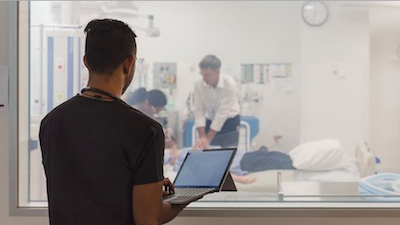
Bendigo Health Psychiatric Services (BHPS) is using Microsoft Cognitive Services artificial intelligence tools to enable speech-to-text conversion of clinical notes and a connection to CSIRO's Ontoserver for SNOMED coding as part of the new cloud-based digital system it has rolled out for triage, community and residential mental healthcare in the Loddon Mallee region of Victoria.
The DC2Vue system, developed by Melbourne firm Data Capture Experts in association with Bendigo Health using Microsoft's Azure cloud technologies, features pre-configured care coordination modules to capture a timeline of patient and client care from point of entry to discharge.
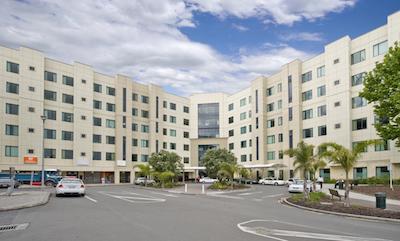
Counties Manukau District Health Board plans to roll out the TrendCare patient acuity and workload management tool at Middlemore Hospital following the signing of the national accord to implement the Care Capacity Demand Management (CCDM) program for safe staffing levels for nurses and midwives.
TrendCare, which is used by almost all of the other DHBs as the patient acuity tool for CCDM, will replace McKesson's Assignment and Workload Manager (AWM) tool, a module of the ANSOS One-Staff system now owned by Change Healthcare, which merged with McKesson in 2016.
CCDM involves a full-time equivalent staff calculation for setting the base staffing in wards, a variance response management system and a core data set for monitoring. It is designed to be a more flexible method for safe staffing than nurse-to-patient ratios, such as those used in Victoria.

EMR vendor Cerner Asia Pacific has appointed high-profile digital health experts Monica Trujillo and Michael Draheim to senior positions with the company.
Mr Draheim will oversee Cerner's expanding position in Victoria and South Australia, having led the roll out of Cerner's digital hospital stack at the Princess Alexandra Hospital in Brisbane, the first public hospital in the country to reach HIMSS electronic medical record adoption model (EMRAM) level 6.
Dr Trujillo, formerly the chief clinical information officer (CCIO) with the Australian Digital Health Agency, will take on the same position at Cerner, as well as becoming the company's chief medical officer.


The introduction of appointments by some of Primary Health Care's larger medical centres has seen an increase in gross billings per hour compared to the walk-in model, with the company planning to convert all of its practices to the new model next year as it moves to a single practice management system.
The ASX-listed company is rolling out the cloud-based Helix PMS from former subsidiary MedicalDirector to its 73 general practices. It is also revamping its diagnostic imaging centres with the implementation of the Visage radiology information system from Pro Medicus, and has a preferred vendor in mind for its laboratory information system project, which will replace the four different systems currently used.

A study of the Health Care Home model being rolled out by the Tū Ora Compass Health primary health organisation in Wellington has shown a small but significant reduction in emergency department admissions from general practices that have implemented the model.
New Zealand's Health Care Home model involves the use of technologies such as patient portals and GP telephone triage and is a whole of practice model, unlike the trial currently being undertaken in Australia that specifically targets patients with one or more chronic diseases.

Pulse+IT's weekly round-up of international health IT news for the week ending October 7: BlackBerry reinvents for health IT security, European PHR market, Irish EHR market, ONC builds FHIR Inferno, FDA playbook for medical device security, opioid crisis v patient privacy, apps for remote vital signs and smartphone ultrasound, NpfIT battle, Jawbone returns
BlackBerry launches Spark platform for secure connectivity, healthcare security products
MobiHealthNews ~ Laura Lovett ~ 04/10/2018
BlackBerry's new healthcare-related security products include a blockchain system for medical data and operating system for secure medical devices.
ONC releases testing suite to ensure consistent FHIR implementations
Health Data Management ~ Greg Slabodkin ~ 04/10/2018
ONC contends that the testing tool – called Inferno – is particularly important for developers releasing FHIR servers, systems from which provider- and patient-facing apps and other services will obtain health data.

It's just over two years ago now that the RACGP put its foot down on the continuing use of the fax in general practice, issuing a position paper calling for healthcare services and government agencies that communicate patient information with general practice to cut out the paper and move instead to secure electronic means.
The college had high hopes that this could happen in three years, what with alternative means such as secure messaging already a mature technology. But while progress has been made by the industry to achieve interoperability between secure messaging providers, the fax machines are still there, cranking out as much paper as ever.

Global health IT vendor InterSystems has extended its IRIS Data Platform with healthcare-specific capabilities, adding an application framework for the rapid development of solutions using the FHIR standard.
The IRIS Data Platform is aimed at a number of industries and combines transaction processing and analytics to offer a development platform for building and deploying applications at scale.

Victoria's Peninsula Health has gone live in its pharmacy department with the new HS8 integrated electronic controlled drug register solution from the company formerly known as Methsof.
Now known as Modeus, the Melbourne-based firm was originally named after its methadone software but has recently moved beyond pharmacy-based opioid program management to service the hospital, aged care and veterinary sectors as well.

The New Zealand Ministry of Health has released draft papers on proposed pathways to interoperability and a connected health network that feature a strong emphasis on developing open APIs to replace proprietary methods of integration, along with a move from closed networks to secure communication over the internet.
The draft proposals, developed by joint technical working groups from the Health Sector Architects Group and the Health Information Standards Organisation (HISO), are part of moves to develop reference architectures and information standards to inform the country's digital health strategy.

Melbourne-headquartered clinical and practice management software vendor Zedmed is in the pilot phase with its new release, due out next month, and is looking ahead to the new year when it plans to introduce an app that will allow doctors to access key functionality on their iOS and Android devices.
Zedmed, which counts specialists, GPs and allied health professionals among its users, said it planned several product updates that are designed to improve the functionality, performance and ease of access to the software.
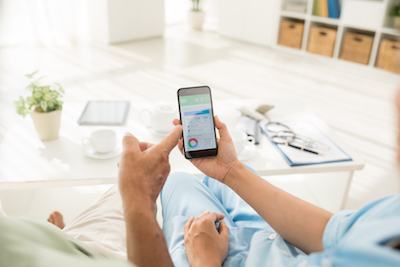
A small survey of health consumers has found that the majority think the government should have a role in regulating and reviewing health and wellbeing apps, or they should fund another organisation to do it.
The survey, of 260 health consumers carried out by the Consumers Health Forum, also found that GPs, pharmacists and other health professionals were them most trusted source of advice about apps, well above the app stores, Google, online peer groups or friends.

Former Telstra Health chief medical officer and ReadyCare CEO Amandeep Hansra has joined the board of Coviu, the telehealth platform spun out from CSIRO's Data61 group.
Dr Hansra is a fellow of the Royal Australian College of General Practitioners and is a member of its expert committee on practice technology and management. She has also held roles at Medibank Health Solutions and Ramsay Health Care.

A NSW parliamentary committee had called on NSW Health to finalise an upgrade to the state's Incident Information Management System (IIMS) “as a matter of urgency” after hearing there were flaws in the system that meant the full implementation has been delayed.
NSW Health officials also blamed the 2017 purchase of Melbourne-based RiskMan International – which won the tender in 2015 to replace the existing AIMS-based incident management system – by UK firm Datix as another reason behind the delay.

Waikato District Health Board has issued a tender for an electronic observations solution to replace its paper-based Adult Deterioration Detection System (ADDS) observations chart.
The system will need to be able to capture vital signs information electronically in the national early warning score (NEWS) format along with the paediatric and maternity formats, and to do automatic calculations of early warning scores.

More than 400 sites in the Western Victoria Primary Health Network (PHN) catchment are readying themselves for the inaugural go-live of the state's SafeScript real-time prescription monitoring system, which will begin tomorrow.
The $29.5 million SafeScript program, the technology for which has been built by Fred IT using its eRx Script Exchange system in partnership with MediSecure, will be rolled out to the rest of the state next year and will be mandatory for doctors, pharmacists and nurse practitioners to use from April 2020.
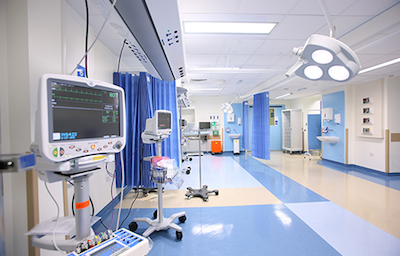
Orion Health shareholders have voted overwhelmingly for a proposal to sell off its profitable Rhapsody division for $NZ205 million, with a share buyback to be staged next month followed by the company delisting from the Australian stock exchange.
Describing himself as “bitterly disappointed” by the failure of the company to deliver the big rewards once touted, Orion chairman Andrew Ferrier said the Auckland company would continue as a newly capitalised albeit smaller business, and those looking to sell up would receive a good price “in the context of where the Orion Health share price had found itself”.

Pulse+IT's weekly round-up of international health IT news for the week ending September 30: NHS readies GP record access app, US develops wizard for medical record access, AI hype vs reality, dodgy glucometers, Bristol shared record on FHIR, patients share health info on FB, US DHHS wall of shame, South Africa's pharmacy dispensing units, PDMP in Meditech EMR
NHS App to launch to nationwide private beta testers
Digital Health News ~ Owen Hughes ~ 26/09/2018
Services include symptom checking and triage; appointment booking; repeat prescription ordering; access to patient records; national data opt-out; and organ donation preference.
Health IT experts develop the “wizard” for easier health record access
Heatlhcare Informatics ~ Rajiv Leventhal ~ 27/09/2018
Led by X4 Health, an organization founded by consumer advocates, the new prototype tool, called the "Health Record Request Wizard," looks to streamline and simplify the records request process while promoting digital formats.
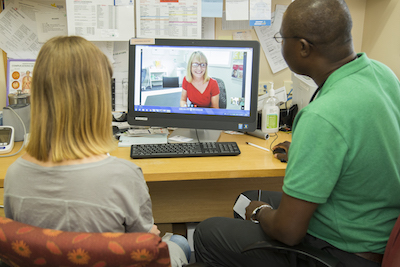
Our top story for the week concerns an issue that has been bubbling away for a couple of years now and has raised its head again with the news that the RACGP has agreed to partner with a Canadian vendor called Myca Health to help it survey GP views on practice management systems.
Myca sells a PMS called Hello Health into the US market and is planning on making an advance on the Australian market in future. To do this, it's looking to tailor the existing technology for local requirements, and has entered into an arrangement with the RACGP to get its help in facilitating a conversation between members and Myca on what they'd like to see from a PMS.
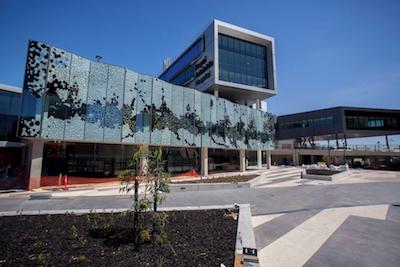
A three-person expert review panel looking into problems with SA Health's enterprise patient administration system (EPAS) has decided it cannot continue in its present form, according to a report in the Adelaide Advertiser.
The panel, headed by former Telstra Health MD Shane Solomon, former Commonwealth chief medical officer Chris Baggoley and former Queensland Health CIO Mal Thatcher, was called in to review the system after its roll-out was halted by the newly elected SA government in March.
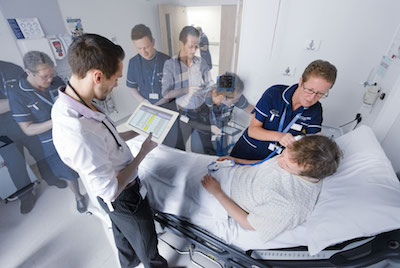
Earlier this year, ASX-listed firm Alcidion made the first of two strategic acquisitions that has radically changed the Adelaide company, best known for its Miya health informatics platform that counts Western Health and the Northern Territory Department of Health among others as long-term customers.
Having signed a reseller agreement with New Zealand start-up Oncall Systems for its Smartpage clinical messaging and mobile task management system in 2017, Alcidion then purchased the company outright in February 2018, integrating Smartpage into the Miya platform, where it is providing added functionality to the Miya Patient Flow and Miya Access bed management products.
Then in April, Alcidion announced it would buy IT services and integration specialist MKM Health, which has long-standing trans-Tasman contracts and is the distributor in the region for the well-regarded early patient deterioration warning system Patientrack.

Bacchus Marsh-based GP and long-standing eHealth interest group member Rob Hosking has taken over the chair of the RACGP's expert committee on eHealth and practice, which has been renamed as the RACGP Expert Committee – Practice Technology and Management (REC–PTM).
Dr Hosking, a former NEHTA clinical lead who has a graduate certificate in health informatics, takes over from colleague and fellow long-standing eHealth expert committee member Nathan Pinskier, who held the chair for a number of years.

Digital health vendor Tyde has appointed former Bupa health insurance marketing executive Gemma Croxen to head up its marketing team.
The Sydney firm is rolling out a mobile platform that allows consumers to access their My Health Record, link their family's health records together, manage appointments and prescription data and receive tailored preventative health messages.

A Canadian general practice software vendor that has a decade-long presence in the US is planning to design and develop a practice management system aimed at the Australian GP market, and has somewhat controversially secured the support for its consultation phase from the Royal Australian College of General Practitioners (RACGP).
While the current market is highly competitive and has a number of long-term and new entrants, Hello Health – owned by Canadian firm Myca Health – believes that it is ready for change, and the six- to nine-month consultation phase the company plans will allow it to create what it says is the most supportive software system for Australian GPs.

ASX-listed Global Health has implemented its MasterCare EMR for Melbourne-based rehabilitation service Windana Drug & Alcohol Recovery to improve its data collection capabilities.
In addition to helping Windana with its reporting requirements for the new Victorian Alcohol and Drug Collection (VADC), which was introduced last year, the solution includes inpatient and community episode management, referral management, a data warehouse, templates and forms, and appointments and scheduling.
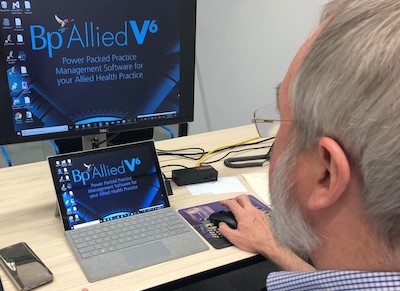
Best Practice Software has launched version 6 of its Bp Allied clinical and practice management software, promising new and improved private health claiming through Bp’s integration with Tyro HealthPoint and a new integration with cloud accounting package Xero.
Bp Allied, which was formerly known as myPractice before its acquisition by Best Practice in 2016, has a series of tailored modules for the different allied health professions including customisable client notes and patient task management capabilities.

Melbourne's Royal Children’s Hospital has developed a new app for emergency nurse practitioners, providing assessment tips and guidelines for managing children in emergency departments.
The app adds to the hospital's growing library, which includes a patient check-in app and patient portal app, the award-winning Okee in Medical Imaging app, and clinical guidelines for paediatric care and paediatric intensive care.

A taskforce set up to help solve a serious deterioration in turnaround times for test results from SA Pathology following the go-live of Cerner's laboratory information system is reporting that a data entry backlog has been cleared but there are issues that still need to be resolved.
The full roll-out of the Enterprise Pathology Laboratory Information System (EPLIS), now being called EPLIS Millennium, saw such a deterioration in turnaround times in May this year that patient safety became a concern, and caused what the taskforce calls a “massive loss of confidence” in SA Pathology by GPs.
The format of pathology reports was so user-unfriendly and unfamiliar that some GPs changed their preferred provider to private labs, the taskforce found, and one of its main recommendations is that there be a strong focus and marketing effort to meet the special requirements of the GP community and to restore confidence and market share.
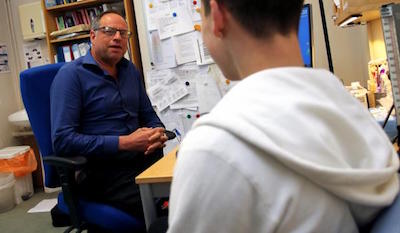
A FHIR application programming interface has been added to the South Island's HealthOne shared record system to enable it to connect to GP practice management systems and speed up the data exchange process.
The system, which allows GPs, pharmacists, community nurses and hospital clinicians to access key healthcare information for South Island residents, is now being viewed 140,000 times a month by clinicians, the majority from the secondary care sector.
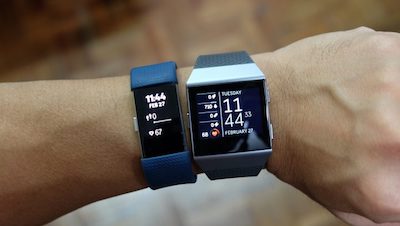
Pulse+IT's weekly round-up of international health IT news for the week ending September 23: Fitbit targets virtual care, UK PMS vendor commits to FHIR, APIs and shared data standards, axe the fax movement, Apple Watch 4 review, EMR burnout, Canadian snoop, Telus and Babylon, cloud precision medicine
Fitbit launches new enterprise platform for health and disease management
MedCity News ~ Kevin Truong ~ 19/09/2018
The new service adds health coaching and virtual care on top of the company's existing enterprise wellness offerings.
System C commits to ‘full FHIR support’ to drive interoperability
Digital Health News ~ Jon Hoeksma ~ 18/09/2018
System C & Graphnet Care Alliance has announced a commitment to ‘full FHIR support’ for all its shared records, EPR, child health and social care systems.
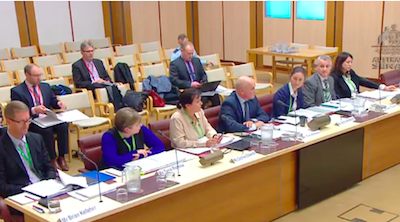
It doesn't really reach the heights of Paul Keating's inimitable description of the 1989 national accounts as a “beautiful set of numbers”, but the federal government would be more than pleased with the headline figure of three per cent as the opt-out rate of the My Health Record so far.
Considering the relentless negative press that has accompanied the start of the opt-out period in mid-July, that just under 900,000 people have opted out is a pretty good outcome for the government and its agencies. The opt-out rate in the 2016 trials was 1.9 per cent but the government's own research shows that half the trial population didn't even know what a MyHR was before they got one, so that number is a bit rubbery, and three per cent will be accepted with alacrity.

eHealth NSW plans to trial offering a Health Grade Enterprise Network on an infrastructure as a service (IaaS) basis as part of the $1 billion Westmead precinct redevelopment in western Sydney.
The project includes the construction of a 14-storey central acute services building, a $95 million refurbishment of The Children’s Hospital and significant refurbishments to Westmead Hospital itself.

Brisbane’s QEII Jubilee Hospital has successfully trialed a new acute care assessment system developed by Finnish firm RAIsoft in association with the University of Queensland that promises to reduce the time nurses need to take when doing risk assessments on elderly patients on admission from up to two hours to 15 minutes.
The RAIsoft Acute Care system, which was launched at the Global Acute Care Excellence Forum in Brisbane earlier this year, reduces the critical information needed for a core assessment from between 150 and 500 data items to 60.

The Department of Defence expects to go to tender for its long-awaited health knowledge management (HKM) platform for the Australian Defence Force in early 2019, phase four of the billion-dollar JP2060 Deployable Health Capability project.
Defence says the aim of JP2060 Phase 4 is to deliver an HKM solution to provide readily accessible health knowledge, including patient clinical information, to support healthcare provision in both deployed and non-deployed contexts.

Waitemata District Health Board has issued a request for ideas on an IT platform that can help with the secure transfer of low acuity patients from emergency departments to an alternative urgent care clinic.
The DHB has been running a pilot program to show that patients can be successfully redirected to a UCC and is now looking at what technologies are available to better support the model.

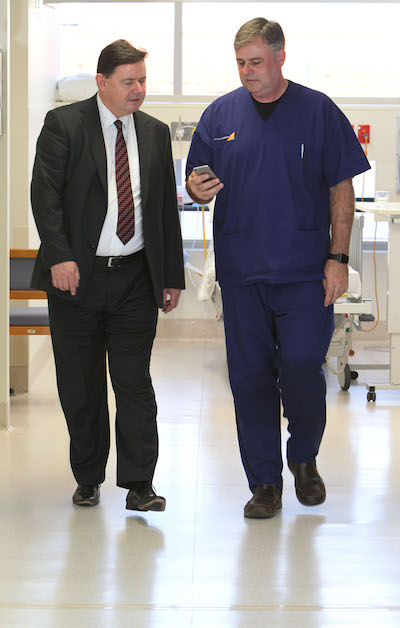
Perth-headquartered St John of God Health Care has rolled out a mobile app to give its specialist doctors access to real-time patient information, with 500 clinicians taking it up so far.
The Doctor Connect app, developed by Telstra Health in association with specialists, connects to hospital patient administration systems and provides access to patient admission and contact details, allergy and alerts, and pathology and radiology results.
It also has a near real-time feed of current theatre bookings listed in various sessions, including a daily view of theatre bookings that lets doctors see their patient details, procedure and anaesthetist. Anaesthetists can also use this view to directly access patient records that they are assigned to.
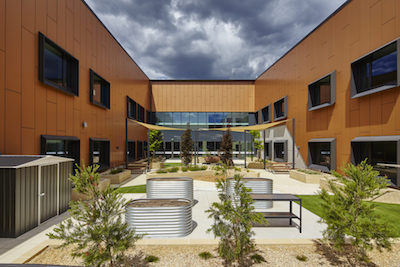
ACT Health has issued a tender for a clinical communications system to replace its paging solution, calling for a message integration engine (MIE), switchboard console and an app for use on mobile devices.
The territory recently went to market for 2000 clinical devices as part of an overall clinical communications platform, which also aims to give clinicians access to critical results, task management capabilities and the new digital journey boards being rolled out across its two publicly owned hospitals and community health centres.

Approximately 900,000 people or around three per cent of those eligible for a My Health Record have opted out of the system since July 16, a figure that is in line with expectations, the Australian Digital Health Agency says.
However, while awareness of the system and people's ability to opt out has grown in that period, a Senate inquiry into the MyHR has heard that four in 10 people are still unaware they will have a record created for them in two months.

The federal, state and territory governments should scope and develop a primary healthcare information strategy that includes a national minimum data set and mandates the measurement of patient experience, according to a new report on primary care integration.
The report also calls for a revamp of the Health Care Homes trial, which has seen low patient uptake so far, that is based on the original Primary Health Care Advisory Group (PHCAG) recommendations.

Best Practice Software has released an update to its Bp VIP.net clinical and practice management software for specialist medical practices in Australia and New Zealand.
In addition to a range of financial and administrative enhancements, the Ruby version includes increased security when adding allergy records to patients' medical records, and new user defined fields for use in the Medical desktop.

The company behind the Australian Medicines Handbook has replaced its AMH Download program with a new AMH App for Desktop, which allows users to install a version of the reference to view on and offline.
The free app contains the AMH prescribing guides but healthcare organisations will still need to buy a subscription to access the full AMH content.
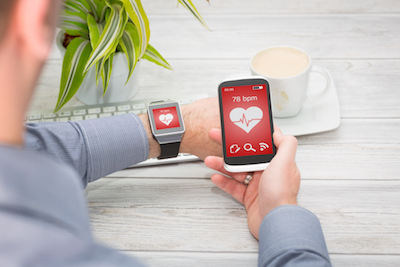
Pulse+IT's weekly round-up of international health IT news for the week ending September 16: Consumer tech as medical device, Big Vendors' app plans, NHS GPs trialling VC, FDA to scrutinise device security, information blocking blocked, Babylon heads to Canada, UK minister on data sharing
Can a watch be a medical device?
Healthcare Info Security ~ Marianne Kolbasuk McGee ~ 13/09/2018
This week's announcement of a new Apple Watch that includes a sensor that can conduct an electrocardiogram spotlights the emergence of consumer apps that appear to cross over into the territory of medical devices, raising potential cybersecurity concerns.
A look inside Epic, Cerner and Allscripts app store programs
MobiHealthNews ~ Bill Siwicki ~ 10/09/2018
Executives explain how the developer initiatives work and why they’re fueling innovation and shaping future direction of their platforms.

This week's proceedings in eHealth kicked off with yet another Senate committee inquiry into the My Health Record on Tuesday night, where we saw pretty much the same old faces repeating the same old things to the same old committee members.
One new face was former AMA president Kerryn Phelps, who delivered a pretty good speech on why she loathes the My Health Record with all her being, repeating arguments we have all heard before at numerous other Senate committee inquiries.

EMR vendor InterSystems has added a mobile, touchscreen-enabled user interface to its Trakcare healthcare information system, promising to support streamlined EMR workflows and deliver context-rich, concise information when it is needed.
The new functionality allows clinical notes to be created with a few swipes and taps, images and barcodes to be captured by a camera and additional information captured by voice.

The National Children’s Digital Health Collaborative is setting up a design authority for the solutions it hopes to develop and is looking for GP and specialist clinical software vendors to participate.
The collaborative, which was established last year by eHealth NSW and the Sydney Children’s Hospitals Network on behalf of the Australian Digital Health Agency, is running three projects: a national child digital health record, a national digital pregnancy health record and national child digital health checks.
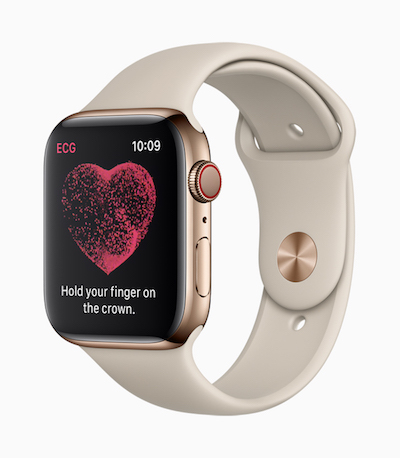
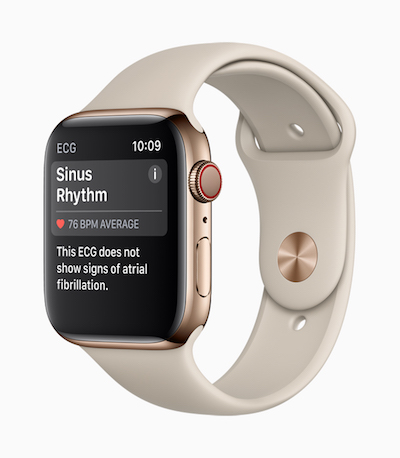
Apple has launched the fourth-generation version of its Apple Watch, featuring new hardware and software enhancements including an ECG app, the ability to detect an irregular heartbeat and a new accelerometer and gyroscope that can detect hard falls.
The ECG and atrial fibrillation capabilities will only be available for US buyers for the time being. The GPS-only Watch will be available in Australia and New Zealand from September 21, but Kiwis will have to wait until later in the year for the GPS + cellular model.

FHIR creator Grahame Grieve has urged the government to adopt a federated model for the proposed re-platforming of the My Health Record, arguing that the existing architecture was cutting edge a decade ago but web APIs and new standards such as FHIR and OAuth now needed to be harnessed to restructure the system.
In a submission to the Senate committee inquiry into the MyHR, Mr Grieve said an alternative architecture would help overcome some of the challenges facing the current platform such as the complex consent process and allow the components of the National Digital Health Strategy to be properly implemented.

The CSIRO has released a new report on the future of healthcare delivery in Australia, highlighting the role of technology and data in helping to improve the health of the population over the next 15 years.
Written and researched by the CSIRO's Health and Biosecurity division, the CSIRO Future of Health report makes a number of recommendations around five central themes: empowering people, addressing health inequity, unlocking the value of digitised data, supporting integrated and precision health solutions, and integrating with the global sector.

The three lower North Island district health boards have issued a request for proposals to roll out an off-the-shelf electronic patient referral solution that integrates with locally used practice management systems, the 3D HealthPathways site and the DHBs' Concerto portal.
Capital & Coast, Hutt Valley and Wairarapa DHBs process just under 200,000 referrals from GPs, specialists and other community providers every year.
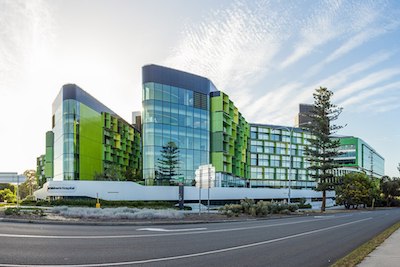
Consulting firm Deloitte has won a $530,000 contract to help develop a digital strategy for the West Australian health system.
The strategy was a recommendation in the interim report of WA's Sustainable Health Review, which was ordered by the then newly elected McGowan government in 2017. The full report is due in November.

Auckland-headquartered clinical information system vendor Orion Health has released an update to its Enterprise hospital information system, featuring a new active care event viewer that enables system administrators to troubleshoot problems.
Enterprise 18.2 also includes improvements to capacity planning and management, allowing users to view prospective patient movements to ensure timely transfers.
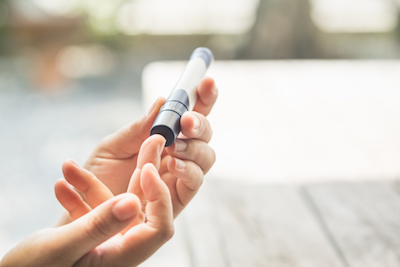
Brisbane-based digital health developer Longevum has won a contract to roll out a diabetes self-management app as part of the Western Sydney Diabetes (WSD) initiative.
Longevum plans to make some adaptations to its Gevity health management platform, which allows clinicians, carers and patients to share health plans and provides remote monitoring of vital signs along with alerts, algorithms and calculators that can determine risk profiles.
WSD, a joint initiative between Western Sydney Local Health District, Western Sydney Primary Health Network and Diabetes NSW, tendered for a self-management app last year, hoping to trial it with 2000 patients before scaling it up commercially. The region has some of the highest rates of diabetes and pre-diabetes in the country.

Priceline Pharmacy and the Pharmacy Guild's technology subsidiary GuildLink are building a free mobile app due to launch later this year to help Priceline customers manage their medications.
The app will prompt patients to refill scripts before they run out, and will have the capability to securely order medication to be picked up when the patient gets a new prescription.

Pulse+IT's weekly round-up of international health IT news for the week ending September 9: Blockchain app for personal health data, Theranos wound up, US Air Force monitoring system dubbed Batdok, cash for UK digital exemplars, NHS eReferrals are go, London shares health records, Johannesburg live with primary care EMR
New blockchain ledger will let US residents sell personal healthcare data
Computerworld ~ Lucas Mearian ~ 07/09/2018
IBM and a start-up have launched a blockchain-based app that lets patients eventually sell anonymized data to pharmaceutical companies, researchers and others while retaining greater control over privacy.

Regular readers of Pulse+IT will remember an interesting move a couple of months ago by a group of four health IT companies in New Zealand to take their concerns about a new clinical information system developed by Auckland primary health organisation ProCare to the press, the public and the New Zealand Privacy Commissioner.
The complaining companies – secure messaging vendor HealthLink and GP software vendors Medtech, My Practice and Best Practice – made some quite serious claims about the potential for a breach of the data of the more than 800,000 patients enrolled with ProCare's general practices in the Auckland region.

New Zealand's privacy commissioner has rejected a petition by four health IT companies that it investigate a new patient database introduced by Auckland primary health organisation ProCare, saying there was no substance to allegations that it had potentially breached the data of up to 800,000 patients.
Commissioner John Edwards took the four companies to task over going public with their claims, saying making “alarmist claims” could cause unnecessary anxiety for patients and undermine confidence in the health system.

Baxter Healthcare has won a $4.9 million, five-year contract to implement a new infection prevention and control (IPAC) system for WA Health.
Pulse+IT understands that Baxter's ICNet system, which is widely used in New Zealand and the UK, is the chosen solution.

The Health Informatics Society of Australia's (HISA) cybersecurity community of practice group is holding its second survey of the current state of cybersecurity across the Australian healthcare sector.
The results will be compared to the 2017 survey which found that organisations that took cybersecurity seriously were more likely to ensure that they had a dedicated budget, a senior security leader, staff for managing cybersecurity, and a formal business plan in place.
However, it also found that 22 per cent of healthcare organisations continued to use end-of-life systems without vendor support, raising the risk of data breaches.

The Northern Territory will pilot its new electronic medical record at Katherine Hospital and its clinics in October next year, before a wider roll-out of the $259 million core clinical system renewal project (CCSRP) by region in the following two years.
Built on InterSystems' TrakCare technology, the CCSRP is currently in the solution build phase and is currently being put through several rounds of configuration workshops involving hundreds of clinicians, including acute care staff as well as those working in the primary and remote community sectors.
NT Health is also rolling out an enterprise master patient index (EMPI) from NextGate that will integrate with TrakCare and help ensure that the Territory achieves its goal of “one client, one record”, and has recently gone to tender for the redevelopment of its ageing enterprise data warehouse (EDW) to integrate TrakCare data with existing legacy systems.

The free GP Psychiatry Support Line launched by a consortium of six NSW primary health networks (PHNs) in July has had 500 registrations so far.
The support line aims to help GPs manage the care of mental health patients in the primary care setting by providing access to a specialist psychiatrist for advice by phone or secure messaging.

The South Australian Liberal government's first budget has come through with money to support an election promise to establish real-time prescription monitoring in the state, with $7.5 million allocated over three years in yesterday's state budget.
The government also promised to fund additional chemotherapy services in regional areas, with $5 million allocated for the implementation of a single state-wide enterprise chemotherapy prescribing system (ECPS).

New Zealand's beleaguered National Oracle Solution (NOS) project is likely to end up costing more than $NZ100 million but is not well set up to successfully deliver the promised benefits, a review of the project has found.
Nonetheless, in a review of the project released by Health Minister David Clark yesterday, consulting firm Deloitte has recommended that wave 1 of the project go ahead, with a roll out to the first four district health boards at Waikato, Canterbury, Bay of Plenty and West Coast.

The Northern Territory Department of Health is looking for a vendor to design, build, test and deploy a new enterprise data warehouse (EDW) to work with its $259 million core clinical systems renewal project (CCSRP), which will see InterSystems' TrakCare solution rolled across acute, primary and remote community care settings across the Territory.
The new EDW needs to be ready to support the pilot of TrakCare at Katherine Hospital in October next year and to manage the huge health dataset the existing warehouse hosts, which represents the largest and most comprehensive record of Indigenous health in the country.

Philips has signed two agreements for managed equipment services with two NSW local health districts in deals that will also see it provide its PerformanceBridge Practice data analytics solution.
The 20-year agreements with Illawarra Shoalhaven LHD and Nepean Blue Mountains LHD involves delivery, upgrade, optimisation, replacement and maintenance services for all major medical imaging solutions across nine hospital sites.

The Pharmacy Guild's technology subsidiary GuildLink has developed a direct integration between its GuildCare NG platform and the Australian Immunisation Register (AIR), promising to make reporting requirements for pharmacies registered as immunisation providers faster.
GuildLink says it is the first organisation to connect pharmacies to the AIR and is bringing pharmacy vaccination reporting into line with other clinical settings.

High-quality, low-cost medication reminder apps improve medication adherence in patients with coronary heart disease, and basic apps are just as good as those with advanced features, a new study has found.
The study, by researchers from the University of Sydney’s Westmead Applied Research Centre, the George Institute for Global Health and Westmead Hospital and published in the journal Heart, looked at 163 predominately male patients with CHD over a three-month period.

Pulse+IT's weekly round-up of international health IT news for the week ending September 2: mHealth platform for eastern Africa, Wales opens up patient records, Epic opens up worldwide, US VA EHR drama, dr2dr secure messaging in Canada, Boston Partners with Teladoc, state of the European EMR market, tele-pharmacy super hub
AfriDOKTA aims to transform healthcare delivery in Africa
ehealth News South Africa ~ Terri Chowles ~ 28/08/2018
AfriDOKTA is a new telemedicine and mHealth platform that aims to help East African countries attain the UN’s Sustainable Development Goal (SDG) 3 of ensuring healthy lives and promoting well-being for all at all ages.
Welsh patients know best after being given access to their records
Digital Health News ~ Hannah Crouch ~ 29/08/2018
Certain patients in Wales have been given access to their own health records, allowing them to collaborate more closely with clinicians on care needs.

The week in eHealth kicked off with the return of an old face at the helm of the health ministry in Canberra with Greg Hunt – or Greg “I came third in a popularity contest with Steve Ciobo” Hunt as we like to call him – taking up his old position on the front bench.
How that is so after first throwing his hat into the ring with Peter Dutton, then declaring undying loyalty to Malcolm Turnbull before having to swear fealty to the new boss in Scott Morrison we don't know, but it just goes to show that no matter how diminished you are as a politician in the eyes of the electorate, the media and your own party, a cushy spot on the green leather lounge is still yours if no one else wants the portfolio.

The electronic system used by Canterbury District Health Board for ordering hospital radiology requests is being rolled out to three other South Island DHBs, with electronic sign-off of reports also being extended.
Canterbury DHB has used Sysmex's Eclair clinical information system for many years and implemented electronic ordering for radiology in 2012.

eHealth NSW has set up a new integrated care portfolio charged with improving the flow of information between the primary and acute care sectors, which will soon see it become the first large health service in Australia to develop an integrated IT system to collect and use patient reported measures.
The state is also moving to improve the quality and timeliness of the electronic discharge summaries it sends to GPs and the My Health Record, as well as working on a statewide approach to eReferrals and referral management.

The Australian Digital Health Agency (ADHA) will begin advertising today for a senior executive with extensive technical, design and strategic skills for the new role of chief digital officer.
Rather than a direct replacement to fulfil the vacant position of innovation and development manager, ADHA says it is looking for someone with industry or vendor experience who will act as the key design authority for national digital health solutions.

Melbourne's Peter MacCallum Cancer Centre is running a trial of virtual reality goggles loaded with a video of a radiotherapy machine that children can watch at home to prepare for their treatment.
The trial, also involving the Murdoch Children’s Research Institute (MCRI), is one of a number currently underway to test whether VR can help reduce anxiety in children in medical settings.

Irish patient infotainment vendor Oneview Healthcare is set to go live in its first residential aged care facility in Australia with the opening of a new 120-bed Thomas Holt facility at Kirrawee in Sydney next week.
Better known for its hospital inpatient infotainment systems, Oneview's aged care solution includes a senior-friendly interface through which residents can view personalised entertainment, calendars, and communicate with family.

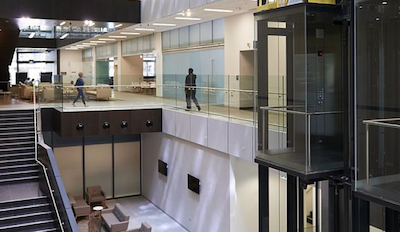
Sydney's Chris O'Brien Lifehouse has gone live with MEDITECH's oncology and pharmacy modules, the first such application of the US vendor's clinical systems in Australia.
The cancer hospital began planning the implementation in September last year and went live in mid-July, with medical director Michael Boyer saying the involvement of nurses, pharmacists and doctors in the planning and building of the systems meant the project had gone, in his words, “spectacularly well”.

ACT Health has issued a tender for a new laboratory information system (LIS) to replace its existing Kestrel technology, asking for a solution that will work with current clinical documentation systems but will in future be able to integrate with the territory's planned Digital Health Record (DHR).
ACT Health has also issued a tender for new clinical work devices which will form part of an overall clinical communications project that will replace the existing switchboard-based paging system with full peer to peer messaging and a mobile work platform for clinical apps at the bedside.
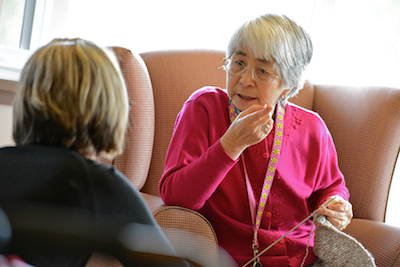
Publicly listed wearable sensor developer Simavita has signed a marketing agreement with a European diaper manufacturer to target the sale of adult continence and infant products incorporating its AlertPLUS technology.
The low cost sensor platform is aimed at the global diaper manufacturing industry as well as the aged and disability care markets. The sensors are incorporated into the diaper manufacturing process and are able to connect to smart devices via an app.
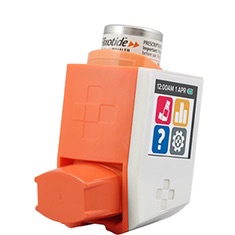
Publicly listed digital health firm Adherium is working with the Asthma and Respiratory Foundation NZ on a new program aimed at improving poorly controlled asthma in Kiwi kids and teenagers.
Adherium has developed a connected respiratory platform called Hailie that automatically tracks medication use and provides missed-dose reminders. It is being provided free of charge for this program.

Greg Hunt has been returned as head of the health ministry in the new Morrison cabinet despite having resigned last week as part of the failed attempt to install Peter Dutton as prime minister.
New Prime Minister Scott Morrison has opted to retain Mr Hunt in the position, along with Minister for Aged Care and Minister for Indigenous Health Ken Wyatt.

Pulse+IT's weekly round-up of international health IT news for the week ending August 26: Facebook working on AI for MRIs, consumer use of online medical records, NHS cash splash for GP IT and hospitals, HIPAA breach wall of shame, EHR satisfaction, US VA's shadow rulers
Facebook, NYU School of Medicine to use AI to make MRI scans 10 times faster
Health Data Management ~ Greg Slabodkin ~ 21/08/2018
The effort, called fastMRI, is meant to speed up notoriously slow MRI machines that can take from 15 minutes to more than an hour to conduct scans, vs. less than a second or as long as a minute—respectively—for X-ray and CT scans.

Poor old Greg Hunt has certainly played a blinder of epically bad proportions this week, the former health minister having hitched his wagon to another former health minister in Peter Dutton in this week's shenanigans in Canberra and subsequently going down in flames.
At the instigation of yet another former health minister in Tony Abbott, Mr Dutton decided to take it upon himself to challenge Prime Minister Malcolm Turnbull this week and in the process pretty much hand the next election to Labor. Like the last one, the next election will largely be swayed by people's concerns over healthcare and how to pay for it.

Sydney-based digital health start-up CancerAid is planning to build new EMR-agnostic integrations using SMART on FHIR protocols following the successful integration of its app into the Epic EMR used at Cedars-Sinai Medical Center in the US in May.
CancerAid has also announced a number of research partnerships in Australia, including a prospective study with the head and neck surgery unit at Chris O'Brien Lifehouse to validate its app.

Greg Hunt has formally handed in his resignation as Minister for Health amid the current upheaval in the parliamentary Liberal Party.
Mr Hunt, who voted for Peter Dutton in Tuesday's leadership spill but verbally pledged allegiance to Prime Minister Malcolm Turnbull in parliament yesterday, said there had been “an irretrievable loss of support” for the party's leadership over the last 24 hours.

The Health Care Homes trial has got off to a slow start with just 4000 of the expected 65,000 patients having been issued healthcare certificates so far, amid a number of technology challenges and with privacy, security and consent workflows still being worked out.
Technological challenges include the need to integrate the trial's risk stratification tool with a range of primary care desktop software, including some that are working on operating systems more than 10 years old.

An amendment to the My Health Record act that explicitly outlaws the disclosure of MyHR information to law enforcement agencies without a court order has been introduced to federal parliament.
The My Health Records Amendment (Strengthening Privacy) Bill 2018 also includes provisions for the permanent deletion of a record once the person has cancelled it. Previously, it was required to be held for 30 years after the person’s death.

The three lower North Island primary health organisations will begin their move to the locally built Indici platform from Valentia Technologies with a migration of general practice data on the existing shared care record system to a new Shared Electronic Health Record (SEHR), which allows hospital and after hours clinicians a read-only view of the GP patient record.
The SCR is currently hosted on Medtech's ManageMyHealth portal and is viewed by hospital clinicians through their Concerto clinical workstation.
Tū Ora Compass Health CEO Martin Hefford said this data would be transferred to the Indici platform in the next month, to be followed by a roll out of the Indici practice management system, a new patient portal and shared care planning tools.

Secure messaging vendor HealthLink and anaesthetic software specialist Medical Business Systems (MBS) have teamed up to develop a secure gateway to allow patient data to be exchanged between specialist practice management systems like Genie and Blue Chip and MBS's Platinum Billing, Diary and InTheatre systems.
MBS managing director Mark Laforest said most patient information is still sent from a specialist’s rooms to an anaesthetist via fax or a PDF attachment in an email.

Intrahealth New Zealand has released a new version of its Profile clinical and practice management system, which it says has had significant enhancements including browser and mobile support for providers and patients.
Profile v8.3 is designed to provide anywhere, anytime access using Intrahealth's Aero app platform for iOS and Android.

A study of 400 people presenting to the emergency departments at St Vincent's Hospital and Austin Hospital in Melbourne has found that searching for health information online was a positive step for most, and was unlikely to make them question the diagnosis or advice of their treating doctor.
The study, published today in the Medical Journal of Australia, involved a survey of patients attending hospital between February and May 2017. It found that 49 per cent regularly used the internet for health-related information and 35 per cent reported searching for information on the problem for which they had presented.

The NSW Labor opposition has promised to spend $30 million to build a real-time prescription monitoring system patterned on Victoria's SafeScript as part of its campaign ahead of the 2019 election.
The NSW government is currently waiting for a review to be completed by Deloitte into the capabilities of the national Electronic Recording and Reporting of Controlled Drugs (ERRCD) system, which has been available for use since 2012 but has not been fully implemented anywhere in Australia.

Pulse+IT's weekly round-up of international health IT news for the week ending August 19: Welsh child health record, Epic opens up, NHS Digital restructure, FHIR-enabled apps, tech companies target health, app for PROMs, early warning system for aged care, DeepMind eyes off AI
Integrated child health system goes live in Wales
Digital Health News ~ Hannah Crouch ~ 16/08/2018
Developed by NHS Wales Informatics Service, the system ensures that every child in Wales has an active care record.

So, here we go again: yet another Senate inquiry has been called into the My Health Record and cynics that we are, we think it will simply be an exercise in thrashing out the same arguments we've all heard before.
There was the 2010 debate on how this thing would look, the 2011 debate on the legislation enabling it, the 2012 botched go live, the 2013 Royle review, the 2014 decision to keep it going, the 2015 decision to trial opt-out, the 2016 trials, the 2017 COAG approval for opt-out, and now here we are in 2018, in the middle of the opt-out period, and we get another inquiry.

Melbourne's Royal Children's Hospital is using live data from its Epic EMR to provide a snapshot of expected waiting times at its emergency department.
The wait time status site, which went live in June, is automatically updated every 30 minutes by analysing live data from Epic.

The Senate Community Affairs committee is calling for public submissions to its new inquiry into the My Health Record, with the committee due to report by October 8.
The inquiry was referred by Labor and the Greens to the committee to look into the government's handling of the roll-out, including the public information campaign and the decision to shift from an opt-in system to opt-out.
The latter was a matter for the committee's previous inquiry in October 2015, when it recommended the shift go ahead.
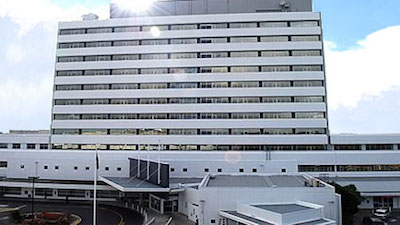
Counties Manukau DHB has rolled out the Inpatient Snapshot developed in-house by Waitemata DHB, which is giving hospital clinicians a clear and up-to-date view of a patient's essential data in real time.
First launched in December 2017 with information from Waitemata's observations system eVitals and its ePrescribing system MedChart, it now includes information on a patient’s allergies, referrals, radiology and lab results and community dispensing results.
Waitemata DHB pharmacist and information systems clinical change manager David Ryan said the technology had been completely developed in-house by one of the DHB's web developers using the open source web framework ASP.NET.

A group of 32 general practices in the Sydney Local Health District catchment is piloting the use of HealthLink's SmartForms technology to send eReferrals for haematology consults to the Royal Prince Alfred (RPA) and Concord hospitals.
The project, also involving Canadian firm Strata Health’s PRISM referral management system and the local HealthPathways program, allows GPs to pre-populate the referral from within their desktop software, send it and receive an acknowledgement that the referral has been accepted or rejected electronically.
Copyright © 2025 Pulse IT Communications Pty Ltd. No content published on this website can be reproduced by any person for any reason without the prior written permission of the publisher. If your organisation is featured in a Pulse+IT article you can purchase the permission to reproduce the article here.
Website Design by Get Leads AU.